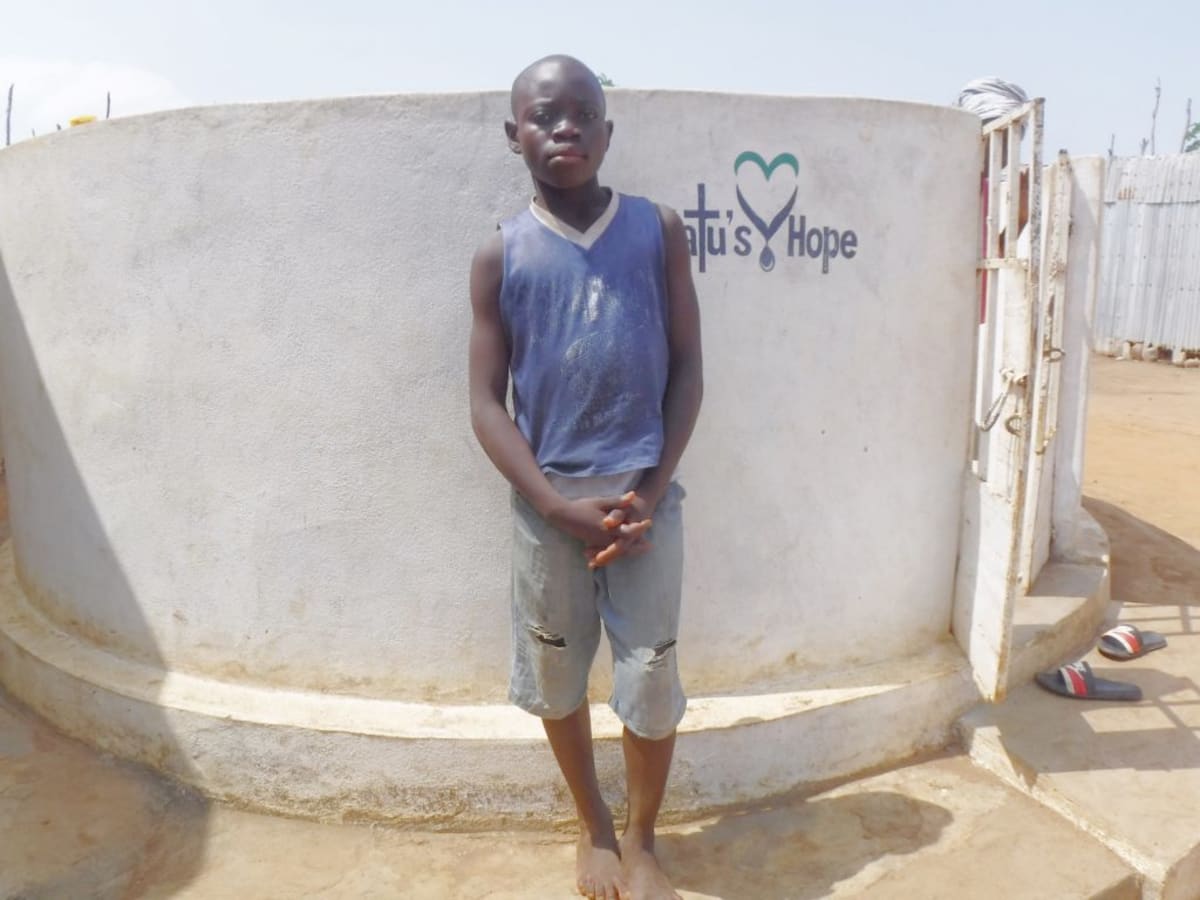This well is located at the Lungi Police Barracks, home to a large portion of the Lungi Police Officers stationed here. Due to the ever-increasing size of the households, the barracks quarters have been reduced to nothing more than a place for the family of officers to lay their heads. What was built to accommodate all family members is now overcrowded.
There are heaps of fruits and vegetables scattered around the compound. Most families have small scale farms to provide vegetables for use at home. The quarters are clean, with tenants providing the well-tended gardens of different flowers lined at each quarter's entrance. All large trees are a thing of the past, significantly contributing to the overwhelming heat and lack of shade in the compound. The quarters are built low, making the heat unbearable, reported our staff.
The barracks have flush latrines and a kitchen, yet no functioning tap supply of water. The 536 people living here depend on the protected well within the barracks for their daily use, but the well has become an unreliable source of water over time due to the effects of climate change.
It is worst in the dry season when the well recharges slowly. This leads to longer lines and muddy water pulled up from the bottom that families then have to filter once they get home. The current state of the well has led to many repairs over the past year, including replacing the entire cylinder.
"The population has increased exponentially, and we need all water points to be functioning properly. The frequent breakdown of the water point not only exposes our children to the dangers of being away from home but also creates tensions in the other areas visited to fetch water," said Isatu Kalokoh, a trader who lives in the community.
"When the well is broken down, I always get up early in the morning to stand guard while my children fetch water. I feel bad for my children because they have to travel a bit off the barracks to avoid the long lines and make sure the water is clean and safe to drink."
The other hand-dug well at the Police Barracks is located at the C-Line Block 13. With the main well not functioning correctly, the pressure is transferred to this well, resulting in frequently reported fights and arguments. The added stress on the well leads it to break down more often due to the increased use.
"We are taught about the effects of global warming at school, and all the cutting of trees contributes to the problem of the reduced water tables," explained teenager Adamace.
"I am already in Junior Secondary School, and more time is needed for my studies. If I spend extra time going to different communities to fetch water, it will result in less study time, which will greatly affect my grades."
What We Can Do:
Well Rehabilitation
The well marked for this overhaul is dry for a few months every year and needs major work to supply adequate, clean water to the community year-round. The pump will be removed, and a hand auger will be lowered inside and powered by a drill team. This hand auger will allow the team to drill several meters deeper to hit a sufficient water column to ensure the well supplies water throughout all seasons.
As the team drills, a casing will be installed, transforming the bottom of this hand-dug well into a borehole. PVC piping will connect this lower system directly to the pump, a construction that we know will also improve the quality of water.
Once this plan is implemented, everyone within the community will have access to safe drinking water in quality and quantity, even through the dry months.
Hygiene and Sanitation Training
There will be hygiene and sanitation training sessions offered for three days in a row.
After our visit, the hygiene and sanitation trainer decided it would be best to teach community members how to build a tippy tap (a hand-washing station built with a jerrycan, string, and sticks). They will use these tippy taps for handwashing demonstrations and will also teach about other tools like dish racks and the importance of properly penning in animals.
This training will also strengthen the water user committee that manages and maintains this well. They enforce proper behavior and report to us whenever they need our help solving a serious problem, like a pump breakdown.

 Borehole Well and Hand Pump
Borehole Well and Hand Pump


































